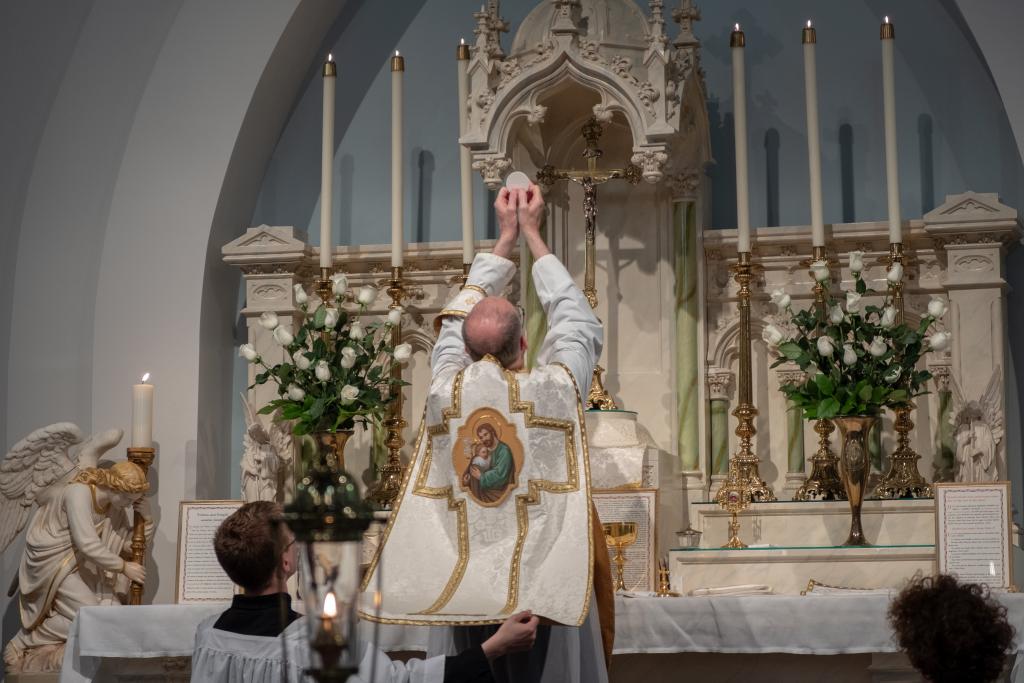
This time last year, a good friend who is agnostic reached out to see if I had any pointers for a non-Christian who wanted to participate in Lent. I was surprised at first, but on further consideration I realized I shouldn’t be. Concepts such as Dry January and Intermittent Fasting have gained popularity in secular culture. These trends sort of look like Lent, but they’re very much not Lent. My friend, a very insightful and reflective person, perceived that this season was different and she wanted to learn why.
Perhaps I should have shouted “LENT IS ABOUT JESUS!” I resisted this urge for two reasons
-
She definitely knows this already. She’s heard me talk about Jesus a great deal.
-
If she was ready to meet Jesus, He would certainly come to her during her Lenten practice.
My job was to help her to understand what Lent is, what it is not, and how to do it well.
Here’s what I came up with.
Lent is About Repentance
The key difference between the Christian season of Lent and the myriad wellness fads is that Lent is about correcting your moral self, not your physical self. If your goal is weight loss, health improvement, or anything of that sort, you’re not doing Lent – you’re on a diet. Many Christians do fast from things like candy or alcohol during this season, but the goal is the personal growth and spiritual rewards that come from austerity. If it is impossible for you to fast from food without thinking about fitness benefits, than I would advise you to fast from something else, such as social media.
Lent is More Than a Fast
Most people do give something up, but that’s only one aspect of the season. Traditionally, Lent has three parts: fasting, prayer, and alms giving. If prayer doesn’t make sense to you, then make a commitment to daily meditation or journaling – whatever helps you to examine your life. If you have the means, pick a charity to donate to throughout the season. It’s also possible to combine Lenten practices, for example, giving up your daily Starbucks and donating the savings to the ACLU.
Lent is Personal
You don’t have to tell anyone what you’re doing for Lent. You might want to give up pornography, drug or alcohol use, gossip – anything you feel is negatively impacting your ability to be the best person you can be. There is no need to talk about it. In fact, some would say that the less you talk about it the better. You should not seek any praise for you Lenten practice.
Lent Lasts 40 Days and 40 Nights
If you’re doing Lent right, it’s going to be challenging. There is a good chance you will fall down on your Lenten promise at some point during the season. But a Lenten promise is not like a New Year’s Resolution; it’s not over when you fail. If you mess up and break your Lenten promise, you’re still expected to pick up and try again. Keep trying until Easter Sunday. That’s the commitment.
Lent Begins and Ends with Celebration
In Christianity, there is no repentance without celebration. There is no death without resurrection. There is no despair without hope. On second thought, there is no despair at all. If you’re going to practice Lent, you should also celebrate Fat Tuesday and you must celebrate Easter Sunday. There is no Lent without Easter.
I don’t know the intimate details of my friend’s experience with Lent last year. I know she didn’t convert. But I also know she’s doing it again this year. So that’s something.
Have a blessed Lenten season.












